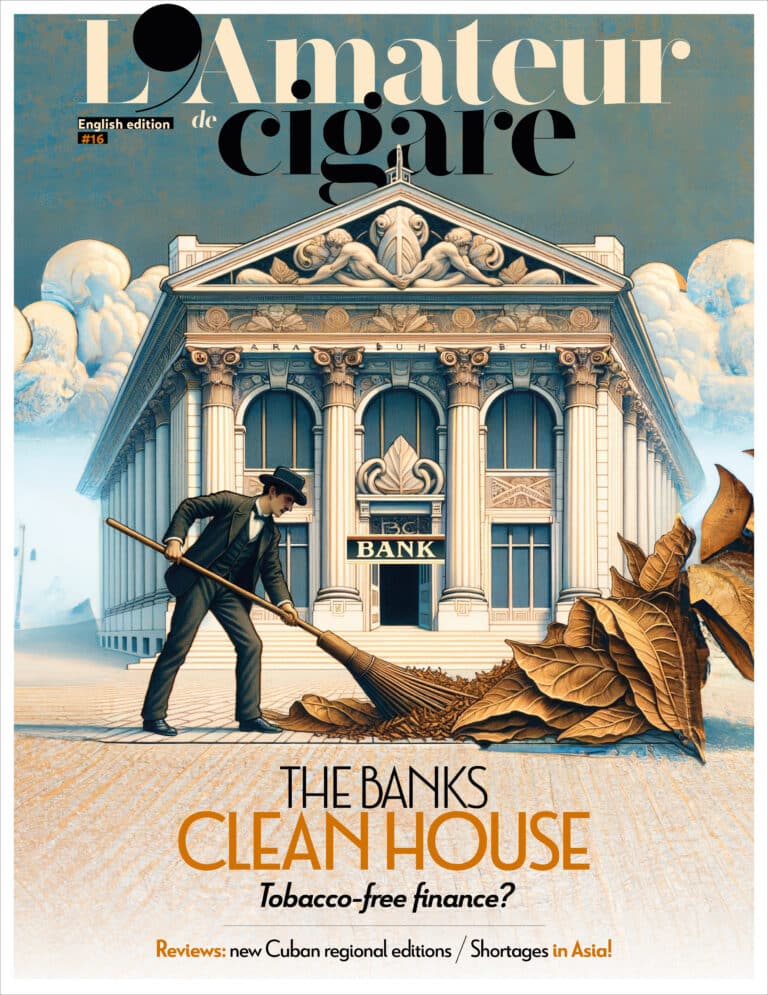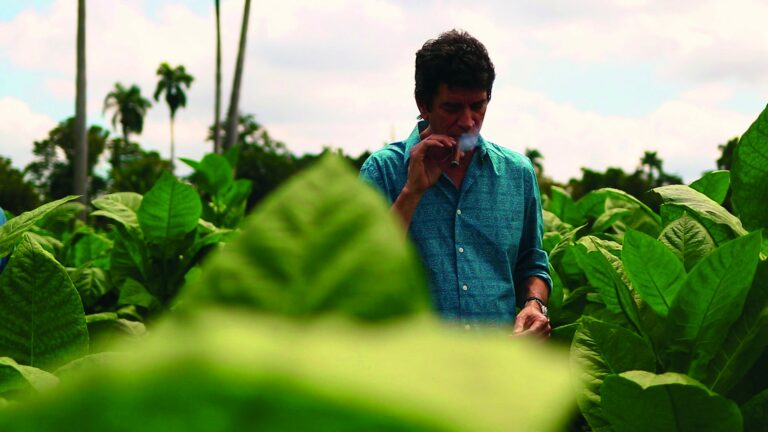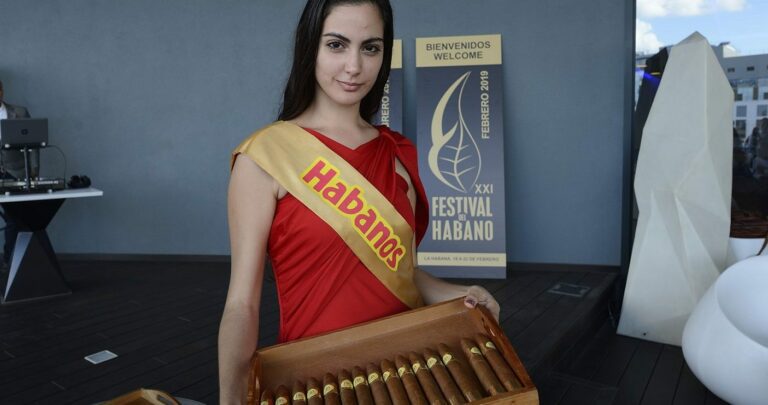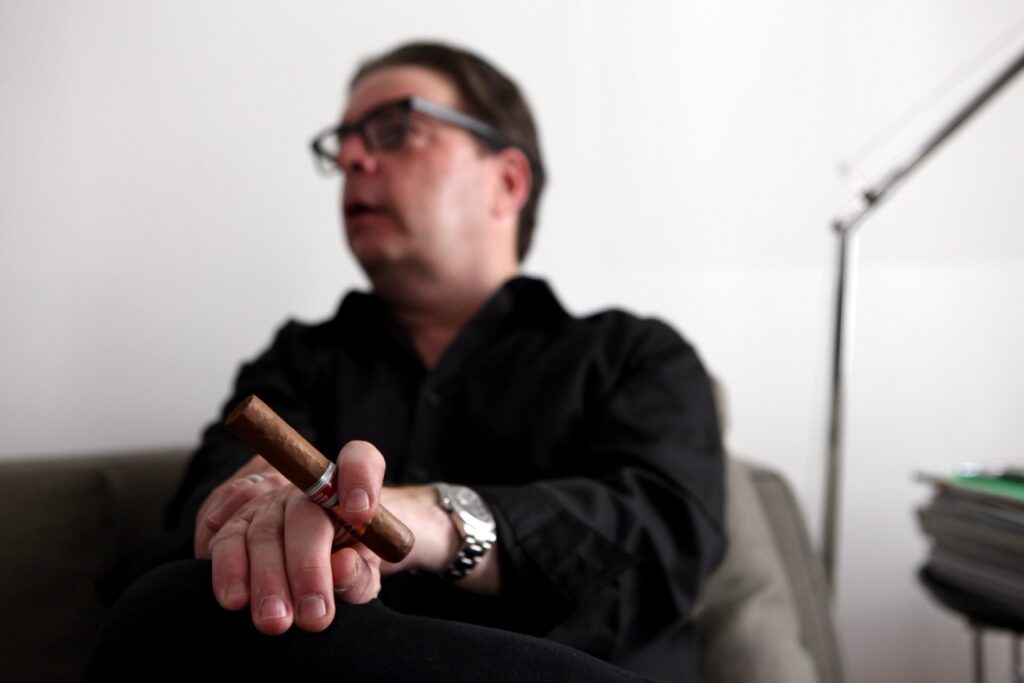
At home with Douglas Kennedy
We seized the chance to meet Douglas Kennedy, that most French of American authors, during one of his rare lightning stopovers in Paris.
By Jean-Claude Perrier
Photos: Patrick Artinian
Douglas Kennedy admits that his relationship with time verges on the pathological. He very nearly scolded us for being ten minutes early – when for once, as journalists, we were proud not to have kept anyone waiting! But we settled down and ended up having a laidback discussion, with the author opening up on whisky, cigars, his family as well as his latest novel. Next came a photo session and a good cigar. As our interview reached its conclusion, we leaned on a bridge over the Ourcq canal [Ed: a canal built between 1802 and 1822 that has become a popular tourist destination in north-eastern Paris] and struggled to say goodbye – no one wanted to break the mood.
The first thing you see, on the left as you enter his apartment, is an open-plan kitchen, known in France as an American kitchen. An array of whisky bottles gleams on the shelves.
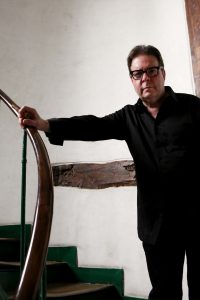
We advise him to buy himself a travel humidor. Then, on the right, we see a wall of shelves filled with books, classical music and Jazz CDs, and photos. Everything is impeccably ordered, like the rest of the apartment. “I don’t like mess,” Kennedy admits.
“These are my children. My son Max lives in Florida. He’s become a photographer, despite his disability. And this is my daughter Amalia, who lives in LA. She’s an actress and she also writes. They’re Irish-Jewish Americans like me, and Anglo-American like their mother. They speak with a British accent because they grew up in London. Being a father is a huge responsibility, but it’s wonderful.”
Eventually we sit down on a cozy sofa. Designer furniture creates a comfortable-chic atmosphere. Music plays in the background, and we ask if he’d mind turning it off. Espressos are served on the coffee table.
“I feel perfectly at ease anywhere. I can fit in, although I’m still Douglas Kennedy! My first place in Paris was a 300 sq ft bachelor pad in Saint Germain des Prés. I had a lot of interesting experiences there, many of them very pleasant. Then I bought this one in the 10th Arrondissement, which was still a working-class neighborhood back then. I did the same thing in New York. I have a good eye for a deal. I like good design, along with a certain simplicity. My dad was in the Marines – so I make sure to make my bed every morning! My only luxuries are cigars, music and films. I don’t own a TV. Nor a Porsche (laughs). Just a 4 x 4 in Maine. In Paris, I take the metro or the bus. People quite often recognize me. I don’t mind. We exchange a few words. I try to be gracious.
I love my life, I love my freedom. I travel all the time and I organize it all myself. I don’t have an agent or an impresario, just an assistant in Maine. I divide my time between Paris, New York, Montreal – where my second wife lives, she’s a shrink – Maine, Berlin and London. It’s the perfect system because there’s no danger of getting into a rut. The trouble with marriage is everyday life. We don’t have much time in our lives, so why complicate things? My real home is New York. I was born there in 1955 but I took off in 1977 for family reasons. I decided to come back and live in the US because it’s my country, these are my fellow citizens. At least the 100 million Americans, out of 350 million, who have a passport. The rest – Middle America – are still deeply Christian conservative
s who don’t know what’s going on in the rest of the world…”
The phone rings. Our host gets up to answer. When he comes back, he takes up the conversation where he left off.
“Everyone suffers at some point in their life, we all go through hard times. You just have to get through it, find a balance, face things. That’s one reason why I write. My family’s a mess. That’s why I left, on March 18, 1977 – I’d just got my Bachelors Degree in American History and I took off for Luxembourg, then Paris, then Dublin. I’d had a scene with my father, but it wasn’t melodramatic. Our relationship was never straightforward. In 2001 when I was 46, things took a turn for the worse and he cut off contact altogether. I say, you can’t change people – so I write, all the time. Except for the ten days, three times a year, when I disconnect completely from the world and block it out. I’ve just finished my eighteenth book – actually my thirteenth novel. It’s a great American saga set in the 1970s and 80s, all about a family and all the secrets they keep from each other. I haven’t got a title yet. I quite often think of the title after I’ve finished the book. It’s being published in the States next year.”
And it’s a wrap. Douglas has another interview afterwards. We just have time to take a few pictures in the stairwell, then a few more in the building’s little courtyard garden. There he takes out one of the cigars that the IADC has given him, in its munificence. It was a Habano, a Por Larrañaga Opera…
What’s the verdict?
“It’s nicely balanced, not as mild as you might expect. There are notes of leather in there, dark chocolate, and waxy notes. This would go really well with a whisky, but it’s a bit early in the day. Maybe another night…”
You might also like
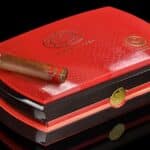
Habanos S.A. features a Partagás for the Year of the Snake
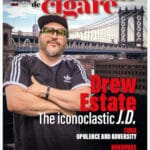
L’Amateur de Cigare English edition #22 is online
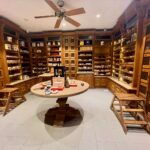
Belgium bans public display of all tobacco products from April 1, 2025
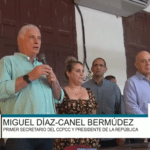
Tobacco is Cuba’s “main export product”, according to president Miguel Díaz-Canel
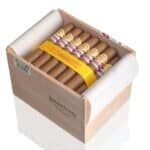
Phoenicia’s Diplomaticos Genios introduced in Havana
Current Issue
ADC Eng 22
All the latest cigar news
